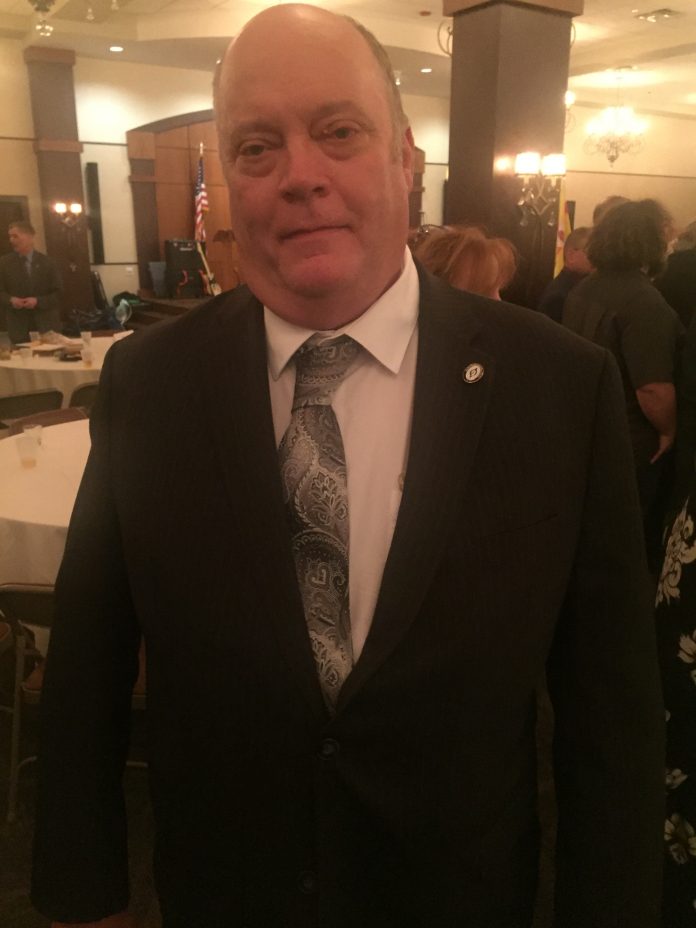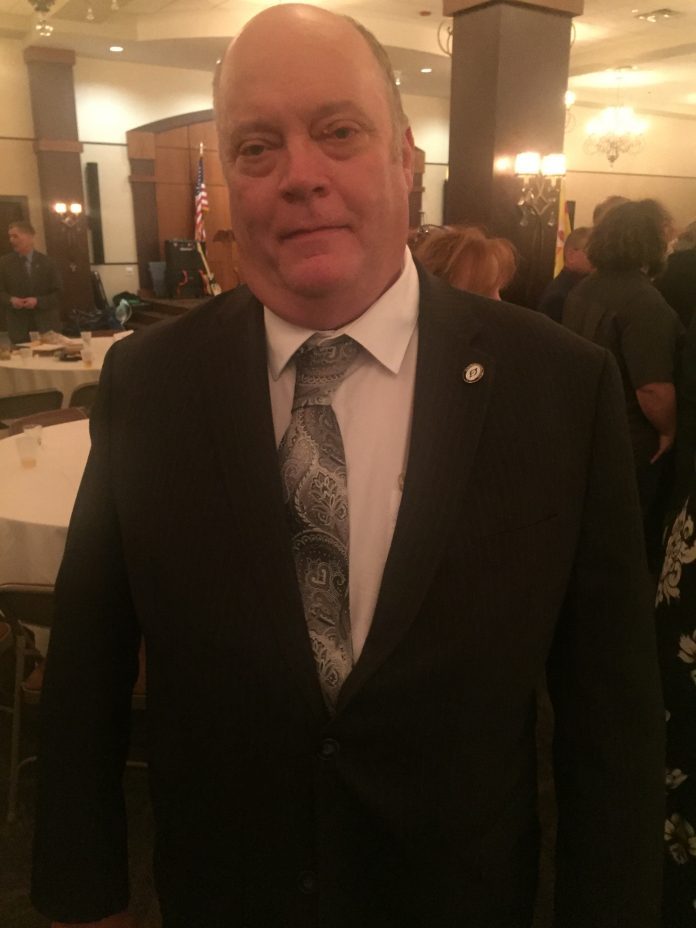Matt Wolfe, a lawyer and Republican ward leader running for an at-large City Council seat, pledged his full support to President Donald Trump’s re-election and challenged the other four Republican candidates to do the same.
“President Trump has been good for America and good for Philadelphia. He deserves re-election,” Wolfe said. “The president has been trimming the size of the federal government, and is the first president to do so since Ronald Reagan. He is eliminating unnecessary and sometimes illegal regulations and executive orders put forth by the Obama administration. The Trump tax cuts are the major driver in our expanding economy, which has led to lower unemployment rates.”
Wolfe credited Trump for opposing sanctuary cities and safe injection sites, supporting law enforcement, providing tax relief for the middle class and policies that have led to historically low unemployment for blacks. He likes Trump’s appointment of U.S. Attorney Bill McSwain, who has stepped up to challenge District Attorney Larry Krasner and Mayor Kenney.
Bill Heeney, a businessman and ward leader from Torresdale, accepted Wolfe’s challenge to support Trump in a Facebook post.
Heeney wrote he has “donated to more causes and Republican candidates, even those with no chance of winning, than all my opponents combined.”
The candidate said he has been to the White House twice during Trump’s term, including once for dinner on St. Patrick’s Day, due to his lifelong commitment to Irish-Catholic causes through the Ancient Order of Hibernians.
“I join Mr. Wolfe in asking Mr. Dan Tinney, Mr. Al Taubenberger and Mr. David Oh, where do you stand?” he wrote.
Before supporting Trump next year, Heeney believes Philadelphia needs to be fixed, noting it is the poorest big city in America. He opposes the city’s sanctuary city status, the beverage tax and proposed safe injection sites, and believes police officers need more support from Kenney and Krasner.

The Times reached out to Tinney, Taubenberger and Oh.
Taubenberger, an incumbent, said, “I am a loyal Republican. I am running for my own re-election and my focus is on fixing Philadelphia’s problems, not on national politics. I am spending my time going door-to-door to hear firsthand the concerns of my constituents, rather than issuing meaningless, self-serving campaign challenges. I’m putting Philadelphia first.”
Tinney, GOP leader of the 66th Ward and beneficiary of union support, and Oh, an incumbent who has successfully wooed Democrats in past races, did not respond.
The at-large race will feature five Democrats, five Republicans and, probably, several independents and minor-party candidates. The top seven finishers are elected.
The five Democrats are almost sure winners because of their party’s 7-to-1 advantage in voter registration. That leaves the other two seats to be won, likely, by Republicans.
Showing support for Trump could turn off the small number of Philadelphia Democrats willing to vote for a Republican at-large candidate. Support from Democrats is often enough to lift GOP at-large candidates to victory.
••
Following Gov. Wolf’s veto last Friday of Senate Bill 48, state Rep. Kevin Boyle, minority-party chairman of the House State Government Committee, released this statement:
“I applaud Gov. Tom Wolf for standing up against voter suppression and vetoing Senate Bill 48. The bill would have removed the straight party button from voting machines, hurting communities of color and Democrats in the 2020 election in this swing state. Senate Bill 48 had motives similar to that of the Voter ID bill. The Voter ID bill prior to the 2012 election would have disproportionately excluded people of color, elderly, and lower-income citizens from voting if they could not provide proper ID. It is simply un-American to make voting harder, and with the potential elimination of straight-ticket voting, we again faced this risk of disenfranchisement of certain voting groups. We should be doing as much as we can to ensure that voting is easy and accessible for all citizens of the commonwealth. As a state representative and as Democratic chairperson of the House State Government Committee, I will continue fighting to ensure ballot access for all citizens of the commonwealth.”
Only nine states allow straight-party voting.
Even if Pennsylvania had a ban, voters could still choose candidates of the same party by pushing individual buttons.
The bill Wolf vetoed included $90 million for counties purchasing new voting machines. ••






